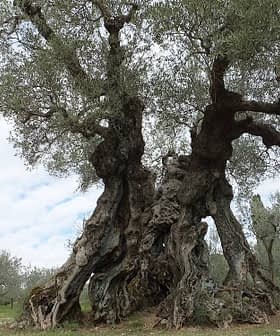A debate between producers and agricultural organizations and the Italian government is raging over a draft legislative decree regarding sanctions for counterfeiting of olive oil and its origin (specified by the Regulation of the European Union 29/2012) that is being reviewed by the Agriculture and Justice Committees of the Chamber of Deputies.
According to producers, trade associations and industry representatives, the new law would decriminalize the crime of counterfeiting. A criminal offense involving commercial fraud would result in a simple administrative sanction.
I will propose to the Committee to audit all the involved parts and this will lead to change the text of draft.
Thousands of growers are protesting the measure which they say threatens to undermine the struggle against products masquerading as Italian made.
If the decree is approved, offenders who do “not respect the obligation to indicate on the label and in the documents of extra virgin olive oils and virgin olive oil the designation of origin, as well as the uneven designation of origin also using signs, figures or other,” will be punished with “a fine of from €1,600 to €9,500,” said the draft that aroused the protests this week.
The president of Unaprol, David Granieri urged the ministers creating a “legislative bypass to replace the penalties for counterfeiting already approved with laws by the Parliament.”
The president of Slow Food Italy, Gaetano Pascale, warned it would be a “serious mistake” to decriminalize offenses related to false labeling of extra virgin olive oils. “Consumers and honest producers,” Pascale said, “must be protected with strict rules and with the certainty that the offenses aimed at undermining the transparency in the supply chain are also punished under criminal law.”
The decree does not include any “decriminalization on labeling and indication of origin” of olive oil, said justice minister Maurizio Martina and agriculture minister Andrea Orlando, in a joint statement meant to reassure that there would not be a step back on the penalties provided by the so called “save oil” law (or “Mongiello Law”, named after the senator, Colomba Mongiello, who first signed it into effect).
“The prevalence of criminal law will be ensured. It will be government’s commitment,” the two ministers said, “to work with the competent parliamentary committees to specify and reinforce the primacy of criminal offenses and sanctions under the decree, in order to integrate and toughen the existing Law and the provisions of the Criminal Code.”
“I will propose to the Committee to audit all the involved parts and this will lead to change the text of draft,” Mongiello added, and she declared her intention to withdraw the entire measure, or alternatively, to be ready to make proportionally raise the cost of the sanctions.
The legislative decree was expected to be approved by early January, but the outcry from producers could delay the procedure.








